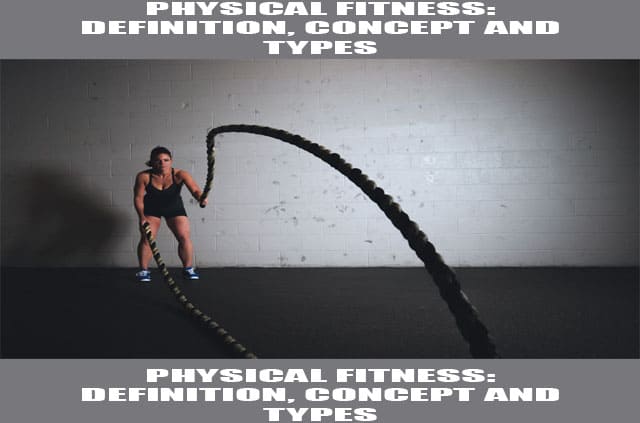What is Physical Conditioning?

Fitness is a condition of health and wellness, more specifically, your ability to perform different parts of daily tasks, jobs, and sports. Physical conditioning is generally achieved through regular moderate to vigorous physical activity, proper nutrition, and adequate rest.
It is an important element to stay fit and healthy. Whether you're interested in following a routine of your own choosing or taking a more holistic approach to fitness, there's something you can do to improve your body's conditioning. Consider intense exercise and focus on using weights instead of machines. As always, consult your doctor before starting any new fitness program. By working with him or her, you can ensure that your physical health remains a priority.
Benefits of Physical Conditioning
Physical conditioning also has its own benefits. It can improve your immune system, improve your cardiovascular system, improve your focus and concentration, lower your blood pressure, reduce your chances of cancer and diabetes, and more. So start now and get in shape. Find a gym or join a fitness center so you can get started on a program that can help you achieve your fitness goals. The benefits of conditioning are endless.
It is important to get enough cardiovascular exercise to improve oxygen circulation throughout the body. This helps you stay alert and properly hydrated during physical activity. Cardiovascular activity also engages your muscles, making them stronger and giving your body more strength and endurance. Aerobic exercises should be done as often as possible, no matter how sedentary your lifestyle is. Even an hour or two a day is enough to reap benefits.
Factors That May Affect Your Fitness
There are certain factors that can affect your fitness. You should be aware of the factors that can cause you to lose your fitness and prevent you from maintaining your current level of fitness. Below are some of the factors you need to be aware of if you want to maintain your fitness. If you have any of these factors, it would be best to be aware of them to avoid losing your fitness or having to work hard to get it back.
1. Age
This is one of the most obvious factors. As you age, your rate of fitness declines. Of course, there are many things that contribute to this, such as illness and aging, but other factors include stress, poor diet, lack of sleep, and too much physical activity. Another reason for aging is decreased oxygen levels in the brain. Therefore, older people should be careful about their physical activities and make sure that they engage in regular fitness activities. In fact, they should even check with their doctors first before engaging in any physical activity.
2. Sex
Men and women have different physical requirements. Women generally need more rest than men and they also need more physical activities like swimming, walking, cycling, etc. Men, on the other hand, need more physical exercises like running and aerobics. Therefore, men need to exercise more in their fitness and bodybuilding. The good news is that there are now many fitness clubs and sports gyms that offer various types of activities for both men and women.
3. Lifestyle
Another factor to consider is your family's lifestyle and your own. Some people can be very active and do a lot of physical conditioning. If you have people who are not leading a healthy lifestyle, you will find it difficult to keep up with them and eventually you will reach physical exhaustion. Therefore, it can be a good idea to have a daily exercise plan and make sure you schedule time for relaxation and recreation.
Main Components of Physical Conditioning
The three main components of physical conditioning are muscular endurance, muscular power, and muscular efficiency.
- Endurance refers to the ability of your body's muscles to withstand an amount of exertion or stress before they tire.
- Muscular power is defined as how much force or weight an individual can exert against the resistance of their muscle.
- Muscular efficiency is how quickly an individual can complete a specific task, sport, or exercise.
There are several factors that affect muscular endurance, muscular power, and muscular efficiency. Genetics and hormones play an important role in muscle conditioning. However, these three factors are not the only factors that contribute to your body's ability to stay in shape. Other factors such as exercise, nutrition, and rest also play a role in maintaining your health.
How can you tell if your body is in poor physical shape?
If you're sedentary or constantly hungry, don't get enough sleep, or don't get enough rest between activities, you may be at risk for poor fitness. Poor physical conditioning can lead to conditions as serious as osteoporosis, heart disease, and even cancer.
To maintain a healthy lifestyle, you need to provide your body with the necessary building blocks or energy. Carbohydrates, proteins, and vitamins provide the energy you need to perform your daily tasks. They are also absolutely necessary for muscular strength and performance. It doesn't matter if you're participating in a strenuous activity or walking down the street. You will need energy to keep moving.
While we're constantly told to eat well- balanced meals to stay fit, few people are aware that the right amount of sleep is just as important when it comes to the health of the body. When you don't get enough rest, you feel tired and lethargic. Tiredness can have a negative effect on your mental state and physical conditioning. Your body needs the right amount of sleep to recharge you. Lack of sleep not only makes you feel sluggish, it can also contribute to poor muscle tone and fitness.
